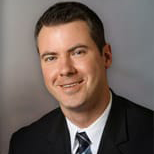Where to find mesothelioma doctors
The question of where to find mesothelioma doctors is one of paramount importance.
Second, and because a mesothelioma doctor is so often superior in mesothelioma expertise, this specialist is usually best able to provide treatment most likely to yield positive results (those being defined as a prognosis-defying long survival and a good quality of life).
However, it can be a challenge, this task of where to find mesothelioma doctors. That is because mesothelioma is a rare type of cancer. And because it is rare, there are far fewer doctors who specialize in mesothelioma than there are those who specialize in, say, cancer of the breast or prostate.
Looking where to find mesothelioma doctors is something that can be approached in several ways.
One is to conduct an internet search. Go to any online search engine (such as Google or Bing) and enter the keywords “mesothelioma doctors” or enter the query phrase “where to find mesothelioma doctors near me”.
Another way to find mesothelioma doctors is to ask a primary care or family medicine doctor for a referral. The American Cancer Society can also point a seeker toward mesothelioma doctors.
Lastly, a mesothelioma patient or loved one who consults a mesothelioma lawyer about bringing a mesothelioma lawsuit against corporations responsible for causing this disease can ask that attorney for the names of mesothelioma doctors who are considered the best in the field.

Why find mesothelioma doctors
Some of that knowledge and understanding comes from daily working with mesothelioma patients. Some of it comes from participating in science research programs focused on mesothelioma. Some of it comes from interaction with the brightest minds in this field at conferences and symposia.
This resultant high-level expertise usually translates into a huge advantage for the patient eager to experience long survival and a good quality of life. For example, a mesothelioma doctor knows therapeutic strategies that can help beat a dismal prognosis. And, because of the mesothelioma doctor’s focus on the disease, he or she will likely be able to provide access to promising but not yet widely available new medicines and treatment modalities.
Bear in mind that mesothelioma care is not a formal field in which doctors become board certified. Therefore, the types of doctors most likely to specialize in mesothelioma will be from these fields of medicine:
- Oncology
- Thoracic surgery
- Gastrointestinal surgery
- Internal medicine
- Pulmonology
Mesothelioma doctors frequently are supported by teams made up of healthcare specialists in other fields. Not all the supporting players are fellow physicians. Typically, included on these teams are nurses, respiratory care practitioners, physical therapists, home healthcare equipment providers, social workers, and insurance claims specialists.
After finding a mesothelioma doctor
This conversation should offer the opportunity to ask the mesothelioma doctor questions about his or her experience treating the disease as well as about the doctor’s care philosophy, approaches, and bedside manner.
These are some of the questions a mesothelioma patient might want to ask the doctor:
- “In what specialty are you board certified?”
- “How many mesothelioma patients have you treated?”
- “How many of those patients beat their initial prognosis because of the care you provided?”
- “What does your treatment strategy customarily look like?”
- “What if it appears that the treatment strategy isn’t working—what do you do about that?”
- “What types of practitioners are on your care team?”
- “How easily accessible are you or the members of your team to answer questions that arise during treatment?”
- “What happens if the side effects of treatment go from mild to severe—how will you respond to that development?”
- “What sorts of research work are you involved in and what have been the results, thus far, of those scientific investigations?”
- “What clinical trials are you participating in?”
- “What kind of help can be expected from you or your team to identify appropriate clinical trials conducted by other doctors at other institutions?”
- “What kind of help can be expected from you or your team regarding enrollment in those clinical trials?”
- “How would you describe your bedside manner?”
- “How good a listener would you say you are?”
- “How good would you say you are at keeping the patient and his or her loved ones informed of progress and setbacks?”
- “What decisions are yours to make and what decisions are the patient’s concerning treatment strategy and delivery of care?”
- “You’re located far away and traveling to see you would be unduly burdensome—what solutions might you be able to offer for that problem?”
It might be a good idea to write down the answers to these questions, especially if more than one mesothelioma doctor will be interviewed (otherwise it will become difficult to keep straight which doctor said what in response to each question).
Another good idea is to write down questions that come to mind during the conversation so that they are not forgotten or overlooked by the time the discussion ends.
Make an appointment to see the mesothelioma doctor
He or she will want to know all about the patient’s medical history—including a rundown of the incidents of exposure to asbestos.
The doctor will almost surely ask the patient to describe experienced symptoms. The doctor might at this time perform a physical exam and follow that up with some tests.
If the patient presents at this first appointment with a mesothelioma diagnosis already in hand, the doctor will probably delve into a discussion of treatment options and explain how each option impacts the prognosis. Otherwise, that discussion will be held off until test results come back and a formal diagnosis can be made.
Make an appointment to see a mesothelioma lawyer
Treating mesothelioma is quite expensive. Medical insurance covers some but not all costs. The uncovered portion is usually substantial enough to cause patients and their loved ones some degree of financial distress.
However, there exists the possibility of eliminating that distress. To achieve such, one must seek compensation from the corporations responsible for causing the asbestos exposure that resulted in mesothelioma.
A qualified mesothelioma lawyer can explain a patient’s (or a loved one’s) legal rights to financial compensation. This is money paid by a culpable corporation to cover expenses such as medical bills, to make up for wages lost because of the disease, and to remedy pain and suffering.
To talk to a mesothelioma lawyer, click here.

About the author…
Gregory Sandifer graduated from Southern Illinois University Edwardsville and received his law degree from Western State University College of Law in Fullerton, California.